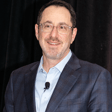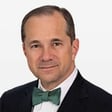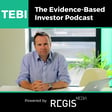
Ep 5: Two blokes from Birmingham
Over the years I’ve found that some of the stanchest and most effective advocates of evidence-based investing are those who’ve actually worked in the active fund management industry and seen its shortcomings at first hand.
Lars Kroijer is one example, and another is Preston McSwain. Preston hails from Birmingham, Alabama, and worked for more than 20 years selling and marketing complex investment products for a range of firms including Lehman Brothers.
But Lehman’s collapse and the ensuing global market meltdown prompted a complete rethink about investing and how best to serve consumers. He now runs Fiduciary Wealth Partners in Boston, managing the wealth of high-net worth individuals, and primarily using Vanguard index funds.
The latest episode of the TEBI Podcast tells his remarkable story.
















